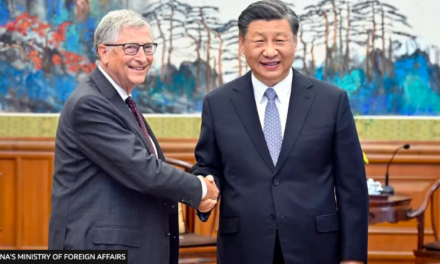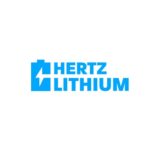Meng Wanzhou, the daughter of Huawei president and founder Ren Zhengfei and the Chief Financial Officer (CFO) of Huawei Technologies, was detained in Canada in December 2018 after U.S. authorities alleged the CFO’s suspected links to two obscure companies – Skycom Tech Co Ltd in Tehran and Canicula Holdings Ltd in Mauritius.
The authorities stated that Meng lied to international banks when she claimed that the two firms were not affiliated with Huawei. The Chinese multinational conglomerate also maintained their stand that the telecom equipment seller Skycom and shell company Canicula are independent.
According to findings by Reuters, Huawei is closely tied to both companies as evidenced by documents and corporate filings recovered in Iran and Syria. The findings further revealed that a Huawei executive was appointed to manage Skycom in Iran. Moreover, three Chinese-named individuals were found to have signing authorities to bank accounts of Skycom and Huawei in Iran. Reuters also added that a Middle Eastern lawyer has stated that Huawei was able to conduct operations in Syria via Canicula.
U.S. investigators said that Huawei kept its control over Skycom to trade telecom equipment in Iran and to transfer money out through international banking institutions. The alleged fraud resulted in banks making clearing transactions worth millions of dollars that may have violated Washington economic sanctions against engaging into business deals with Iran.
Meng refused to comment when asked by Reuters. Likewise, Huawei turned down requests to provide statements concerning the issue. No comments were also acquired from a Washington Justice Department spokesperson and from Canicula’s offices upon request.
The Unraveling Case
On Dec. 11, the Huawei executive was released after she was granted a $7.5 million bail, but was ordered to stay in Vancouver while Washington works on her extradition. Although exact charges were not announced yet to the public, Meng is expected to face numerous charges in the United States with a sentence for each charge amounting to 30 years at maximum, including connections to an alleged scheme in deceiving multiple bank institutions.
On a statement by Huawei last December, they said that the company knew only a few things about the U.S. allegations and were unaware of Meng’s case. Huawei added that it has nothing to do with Skycom except that they’re business partners. They claimed that they have not committed any violations and have complied entirely with all regulations.
In China, Meng’s warrant of arrest raised a furor. The incident became the main source of tension between Beijing and Washington, amid suspicions by U.S. intelligence that Huawei’s telecommunication equipment could possibly be used as an instrument for Chinese espionage. Such claims were repeatedly asserted as false by the Chinese conglomerate.
Still, countries such as Australia and New Zealand implemented a ban on Huawei from conducting operations on their mobile networks in the future. The British authorities also revealed its concerns over such matters.
Skycom and Huawei
Previous articles by Reuters in 2012 and 2013 about Meng, Skycom and Huawei all established the allegations on the U.S. case against Huawei Technologies CFO.
In 2010, Skycom tried to sell €1.3 million embargoed Hewlett-Packard computer equipment to a prominent mobile-phone operator in Iran. According to a previous report by Reuters, there were 13 pages of the proposal marked as “Huawei confidential” carrying the logo of Huawei, to which the Chinese conglomerate clarified that it wasn’t them or Skycom who provided the U.S. equipment.
Moreover, Reuters added that they found numerous links connecting Skycom and Huawei. It was revealed that Meng had a position on Skycom’s board of directors from February 2008 to April 2009.
As a result of the Reuters articles, several bank institutions have raised objections against Huawei, according to documents filed by Canadian authorities on Huawei Technologies CFO’s bail hearing last month in Vancouver.
According to the court documents, the U.S. inspectors claim that Huawei employees, including Meng, have lied continuously about Skycom’s close relationship with the company. They also failed to divulge that Skycom is entirely under the control of Huawei. Moreover, in a private meeting with a bank executive held around August 2013, Meng stated that Huawei had sold its Skycom shares. She also failed to divulge that the buyer was a firm also managed by Huawei.
From the reports presented, Huawei informed the executive’s bank that it had sold its Skycom shares in 2009, the same year when Meng resigned from the Skycom’s executive board. It was also noted that the buyer wasn’t named in the reports.
However, records of the Hong-Kong based company showed that its shares were sent in November 2007 to Canicula – another firm allegedly owned by Huawei. As illustrated on Skycom documents, Canicula was registered in 2006 and was able to manage shares in Skycom for approximately a decade now.
According to U.S. authorities, there were email records and documents that show a list of personnel with executive positions in Skycom who were also employees under Huawei, as stated on the “Summary of Facts” filed for Meng’s bail hearing.
Huawei’s Connection in Syria: Canicula
Canicula, a shell company in the island nation of Mauritius located in the Indian Ocean, owned an office in Syria which is another nation subjected to European and U.S. sanctions.
In May 2014, Aliqtisadi.com wrote an article about the closing down of a Huawei company that focuses on automated teller machine (ATM) equipment in Syria. The article had caused “serious damages” to the Chinese conglomerate which prompted the appointed liquidator and lawyer Osama Karawani to write a request to correct the material.
The article seemed to imply that Huawei had dissolved entirely in Syria which Karawani wants to change since Huawei was still operating in the country through other companies, such as Canicula Holdings Ltd and Huawei Technologies Ltd.
According to an unnamed insider, U.S. investigators knew about Canicula’s connection and alleged Huawei operations in Syria. The insider said that the shell company’s customers include primary telecommunication companies, such as MTN Syria, which had a joint venture with a Huawei customer MTN Irancell.
According to an informant familiar with the situation, MTN advised Huawei on establishing up Skycom’s office structure in Iran. The informant also added that Skycom just served as a front for Huawei.
In December 2017, an unnamed official belonging to the General Director of the branch of Canicula Ltd. company released a notice on the Syrian newspaper announcing that Canicula had officially halted its operation in the country in the last two months ago without further explanation.














